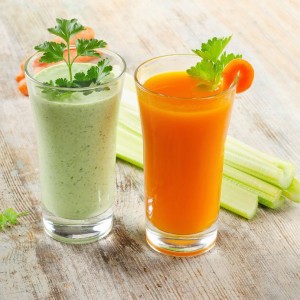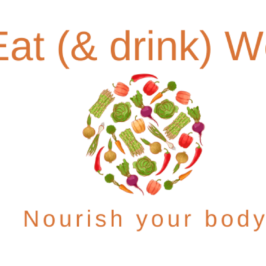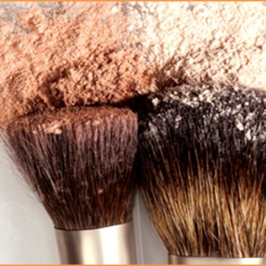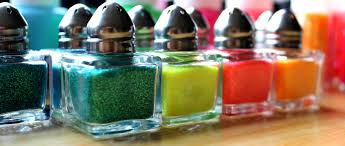 For those who enjoy getting some of their nutrients from fruit and veg through a nutritious drink, the discussion is often around whether a smoothie (fibre included) or a juice (fibre excluded) is better for you.
For those who enjoy getting some of their nutrients from fruit and veg through a nutritious drink, the discussion is often around whether a smoothie (fibre included) or a juice (fibre excluded) is better for you.
Smoothie fans will claim this is better because you are getting important fibre with your smoothie. Fibre is important for preventative health including digestive health, helps to lower cholesterol and cardiovascular health. On the other hand the juice people prefer the juice option because they get their dose of nutrients quicker, and they’re eating lots of whole fruits and vegetables in addition to their juices, so they’re getting plenty of fibre in their diets.
However, when we juice fruits and veg we’re losing more than just fibre as there are some really beneficial nutrients attached to fibre, that can be absorbed into our bodies. These nutrients are a type of Phytonutrients called Polyphenols. Phytonutrients are substances that have therapeutic effects beyond our essential vitamins and minerals. Polyphenols are often associated with being found in tea and chocolate (cocoa) and their benefits include being anti-allergenic, antioxidants and anti-inflammatory. These substances are separated from fibre in our gut through the digestive process, and are able to be absorbed into our bodies to work their magic. So when we take out the fibre from our food we’re taking out a lot more than a substance that helps us with digestion.
As a nutritionist I always try to encourage people to have lots of fibre due to the health benefits already mentioned (and drink plenty of water to accompany this). However, if you’re having only one of these drinks every day or so and eating a healthy wholefoods diet, then I think you should go with the one you enjoy the most. I don’t mind the odd vegetable juice myself.
Cautions on doing increasingly popular juice / smoothie detox programmes
- Juices and smoothies shouldn’t generally replace a nutritious wholefoods diet.
- However, if you do want to detoxify using juices/ smoothies exclusively (or using a restrictive diet) consult a qualified nutritionist. Some health conditions and methods of detoxification can work against the liver detoxification process, and may result in a higher level of toxicity in the body e.g. people with iron anaemia may not have the liver enzymes required to cope with a detox programme (more on that some other time).
- Any good detox will be much more effective when accompanied with reducing external exposure to toxins in your home and general life (more on that one later also).







Leave a Reply